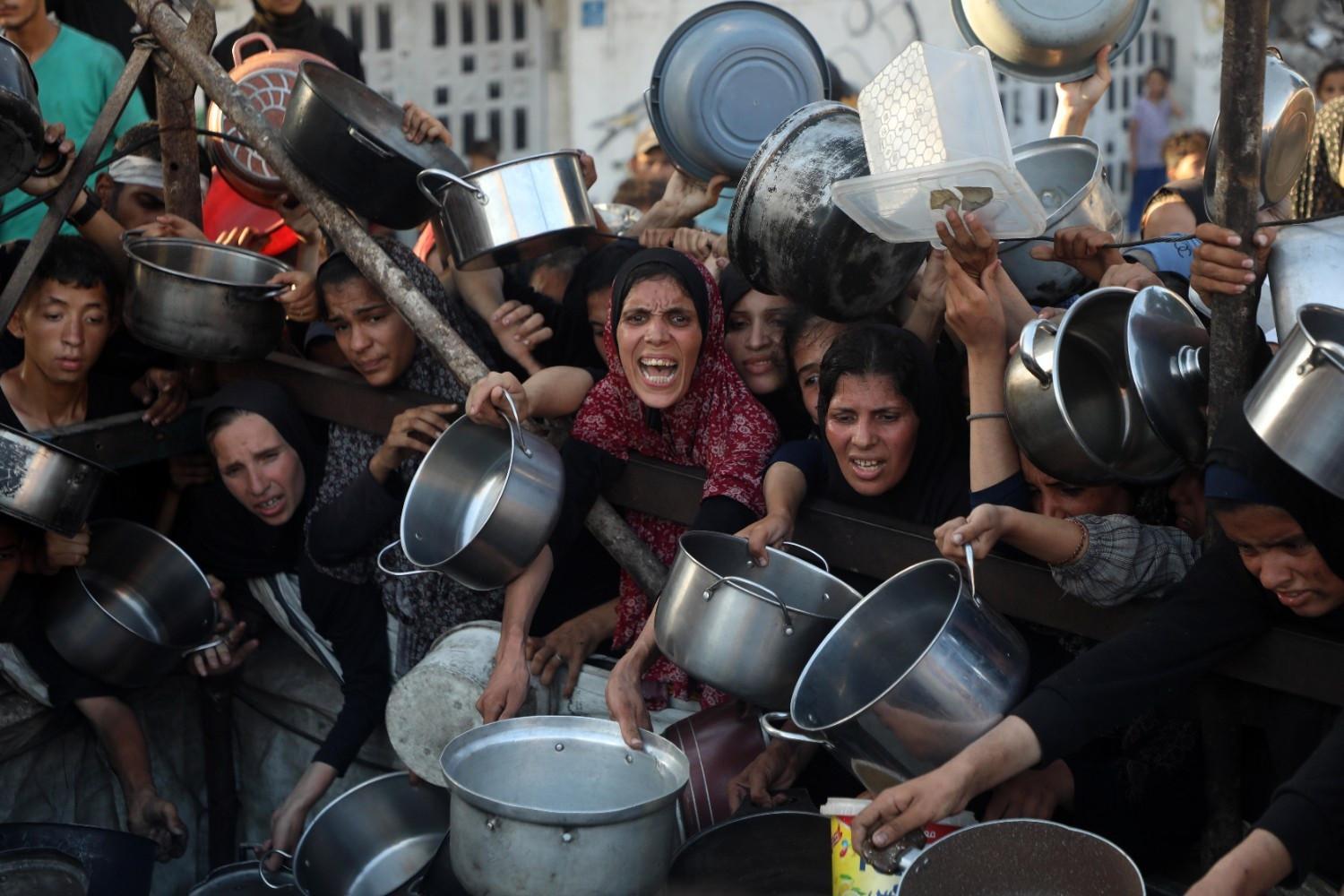
U.S. President Donald Trump accused Hamas on Friday of not wanting to reach a ceasefire deal in Gaza as Israel said it would explore "alternative options" to rescue hostages after negotiations collapsed.
An Israeli official meanwhile told AFP air drops of aid would resume soon over the Gaza Strip, where aid groups warned of surging numbers of malnourished children after more than 21 months of war.
After U.S. and Israeli negotiators quit indirect talks with Hamas in Qatar, Trump said that "it was was too bad. Hamas didn't really want to make a deal. I think they want to die."
The U.S. president argued that the Palestinian militant group was not ready to hand over the remaining captives in Gaza because "they know what happens after you get the final hostages".
His special envoy Steve Witkoff accused Hamas of not "acting in good faith" in the negotiations that ended on Thursday.
Senior Hamas official Bassem Naim in turn accused Witkoff of distorting the reality of the talks and walking back on agreements that had been reached between the parties.
Witkoff was looking to "serve the Israeli position", Naim told AFP.
Israel's Prime Minister Benjamin Netanyahu said that "together with our U.S. allies, we are now considering alternative options to bring our hostages home, end Hamas's terror rule, and secure lasting peace."
Witkoff similarly said Washington would "consider alternative options" on Gaza, without elaborating on what they could entail.
Netanyahu's far-right National Security Minister Itamar Ben Gvir called to reinstate a complete aid blockade, occupy the entirety of Gaza, "encourage" its people to leave and re-establish Israeli settlements there.
Mediators Qatar and Egypt said the talks could still resume, vowing to carry on with "intensive efforts" to secure an elusive breakthrough.
'Moral crisis'
More than 100 aid and human rights groups warned this week that "mass starvation" was spreading in Gaza.
Doctors Without Borders (MSF) said that a quarter of the young children and pregnant or breastfeeding mothers it had screened at its clinics last week were malnourished, a day after the United Nations said one in five children in Gaza City were suffering from malnutrition.
The leaders of Britain, France and Germany, in a joint statement Friday, said the "humanitarian catastrophe" in Gaza "must end now".
"We call on the Israeli government to immediately lift restrictions on the flow of aid" and facilitate the "urgent" work of U.N. agencies and humanitarian groups, the European leaders said.
U.N. Secretary-General Antonio Guterres slammed the international community for turning a blind eye to the suffering of starving Palestinians, calling it a "moral crisis that challenges the global conscience".
I cannot explain the level of indifference and inaction we see by too many in the international community -- the lack of compassion, the lack of truth, the lack of humanity," Guterres told Amnesty International's global assembly via video link.
"This is not just a humanitarian crisis. It is a moral crisis that challenges the global conscience. We will continue to speak out at every opportunity."
Aid groups have warned of surging cases of starvation, particularly among children, in war-ravaged Gaza, which Israel placed under an aid blockade in March amid its ongoing war with Hamas. That blockade was partially eased two months later.
The trickle of aid since then has been controlled by the Israeli- and U.S.-backed Gaza Humanitarian Foundation, replacing the longstanding UN-led distribution system.
International Committee of the Red Cross President Mirjana Spoljaric said Friday "there is no excuse for what is happening in Gaza."
"The scale of human suffering and the stripping of human dignity have long exceeded every acceptable standard - both legal and moral."
Spoljaric said the ICRC has more than 350 staff in Gaza, "many of whom are also struggling to find enough food and clean water."
Israel has rejected accusations it is responsible for the deepening crisis in Gaza, which the World Health Organization has called "man-made".
An Israeli official said Friday that air drops of aid would resume "in the upcoming days" and "will be managed by the UAE and Jordan".
Humanitarian organisations have repeatedly said that parachuting aid parcels, which began in early 2024, was ineffective and cannot replace land access.
Numerous Palestinians had been killed by falling crates, in stampedes or drowned trying to retrieve packages from the sea, before the operations ended after several months.
'It's a trap'
Israel placed the Gaza Strip under an aid blockade in March, which it only partially eased two months later while sidelining the longstanding U.N.-led distribution system.
Aid groups have refused to work with the Israeli- and U.S.-backed Gaza Humanitarian Foundation, accusing it of aiding Israeli military goals.
The GHF system, in which Gazans have to join huge queues to reach one of just four sites, has often proved deadly, with the U.N. saying that more than 750 Palestinian aid-seekers have been killed by Israeli forces near GHF centres since late May.
Gaza's civil defense. agency said Israeli military operations killed at least 23 people on Friday across the Palestinian territory, with another five killed in an overnight air strike.
The overall toll includes at least eight people killed by Israeli fire while waiting to collect humanitarian aid, the agency's spokesman Mahmud Bassal said.
In Khan Yunis, in Gaza's south, Fatima al-Shawaf mourned a relative she said was killed while seeking aid.
"I would rather we die of hunger than have anyone go to this trap that is killing our youth. It is a trap," she told AFP.
Israel's military campaign in Gaza has killed 59,676 Palestinians, mostly civilians, according to the health ministry in the Hamas-run territory.